Time-travel has long been a staple of genre films, novels and television shows serving as everything from a backdrop to teen-comedy hi-jinks in Back to Future to thoughtful contemplation in Ray Bradbury’s short story A Sound of Thunder. Perhaps the craziest of the time travel paradoxes was cooked up by Robert Heinlein in his classic short story All You Zombies. But in the ‘real world’ time travel is thought to be impossible. The world-famous late physicist Professor Sir Stephen Hawking famously once threw a party at the University of Cambridge which was, he said, “a welcome reception for future time travellers,” a tongue-in-cheek reference his 1992 conjecture that travel into the past is effectively an impossibility. The ‘grandfather paradox’ outlines both philosopher’s and physicist’s main objection to time-travel: the possible violation of causality. The term for this comes from the paradox’s common description: a person travels to the past and kills their own grandfather before the conception of their father or mother, which prevents the time traveller’s existence. Whilst time-travel itself remains in the realm of pure speculation, the possible results of the violation of the principle of causality and how nature may prevent them, are hotly debated topics beyond the realms of pulp-fiction with philosophers and physicists speculating on possible solutions.
The grandfather paradox lays out a hypothetical situation in which a time-traveller ventures back into the past only to inadvertently cause an event that results in the time-traveller never having existed at all (usually the accidental death of the titular grandfather) or some other event which makes their journey an impossibility. Despite its title, the grandfather paradox does not exclusively regard the contradiction of killing one’s own grandfather to prevent one’s birth. Rather, the paradox regards any action that alters the past, since there is a contradiction whenever the past becomes different from the way it was.The paradox arises because if the time-traveller never existed, how can they possibly have travelled back in time to commit grand-patricide? Thus the very idea of time-travel seems to raise the possibility of the violation of causality, the rule that a cause must always precede its effect. But recent experiments offer tentative support for time travel’s feasibility – at least from a mathematical perspective.The source of time travel speculation lies in the fact that our best physical theories seem to contain no prohibitions on traveling backward through time. The feat should be possible based on Einstein’s theory of general relativity, which describes gravity as the warping of spacetime by energy and matter.
Physicists and philosophers have speculated on several solutions to the grandfather paradox. The Novikov self-consistency principle, also known as Niven’s Law of the conservation of history, developed by Russian physicist Igor Dmitriyevich Novikov in the late 1970s suggested the use of geodesics (similar to those used to describe the curvature of space in Einstein’s theory of general relativity) to describe the curvature of time. These closed time-like curves (CTCs) would prevent the violation of any causally linked events that lie on the same curve. It also suggests that time-travel would only be possible in areas where these CTCs exist, such as in the presence of wormholes as speculated by Kip Thorne and colleagues in the 1988 paper “Wormholes, Time Machines, and the Weak Energy Condition”. The events would be cyclical and self-consistent. This strongly implies that time-travellers would not be able to change the past, whether this means they are physically prevented or whether they actually lack the ability to chose to do so. So, by Novikov’s theory, any actions that are undertaken by a time-traveller simply become part of pre-existing history and observers are forbidden from seeing these events by what is known as a Cauchy-horizon. However, it is a solution to the grandfather paradox that is generally rejected by the scientific community at large. The Novikov self-consistency principle is far too ad-hoc to be accepted as a rescue of causality.
Is there a more parsimonious solution to the grandfather paradox that is built on pre-existing aspects of physics introduced by other theories or disciplines? It just so happens that one such solution may be provided by a well-known facet of quantum physics: the ‘many worlds’ interpretation of quantum mechanics. A variation of Everett’s many-worlds interpretation (MWI) of quantum mechanics provides a resolution to the grandfather paradox that involves the time traveller arriving in a different universe than the one they came from; although it’s been argued that since the traveller arrives in a different universe’s history and not their own history, this is not “genuine” time travel. Of course, none of this makes time-travel anymore possible, or likely. Einstein’s theory of special relativity and the restrictions on the speed an object with mass severely limit the possibility. But it provides an interesting out to a logical conundrum. It’s ironic that the most plausible solution to the grandfather paradox comes from perhaps the only concept in physics that has created even more fantastical stories and adventures, the concept of multiple universes, even if in this case said universes are co-existing in a non-interacting supposition of states. Interestingly, this application also answers another conundrum often posed about time-travel. If such technology does ever move from wild speculation to reality, where are the time-travellers? Why haven’t they visited us to discuss their wondrous discovery? Or perhaps they’re already here among us, hiding in plain sight…

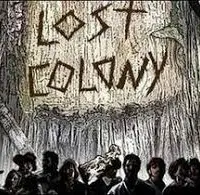


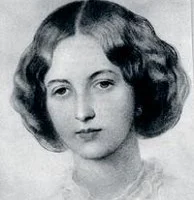
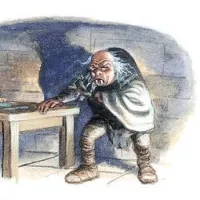

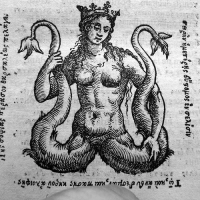



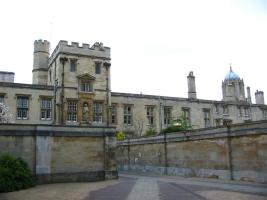





Leave a comment